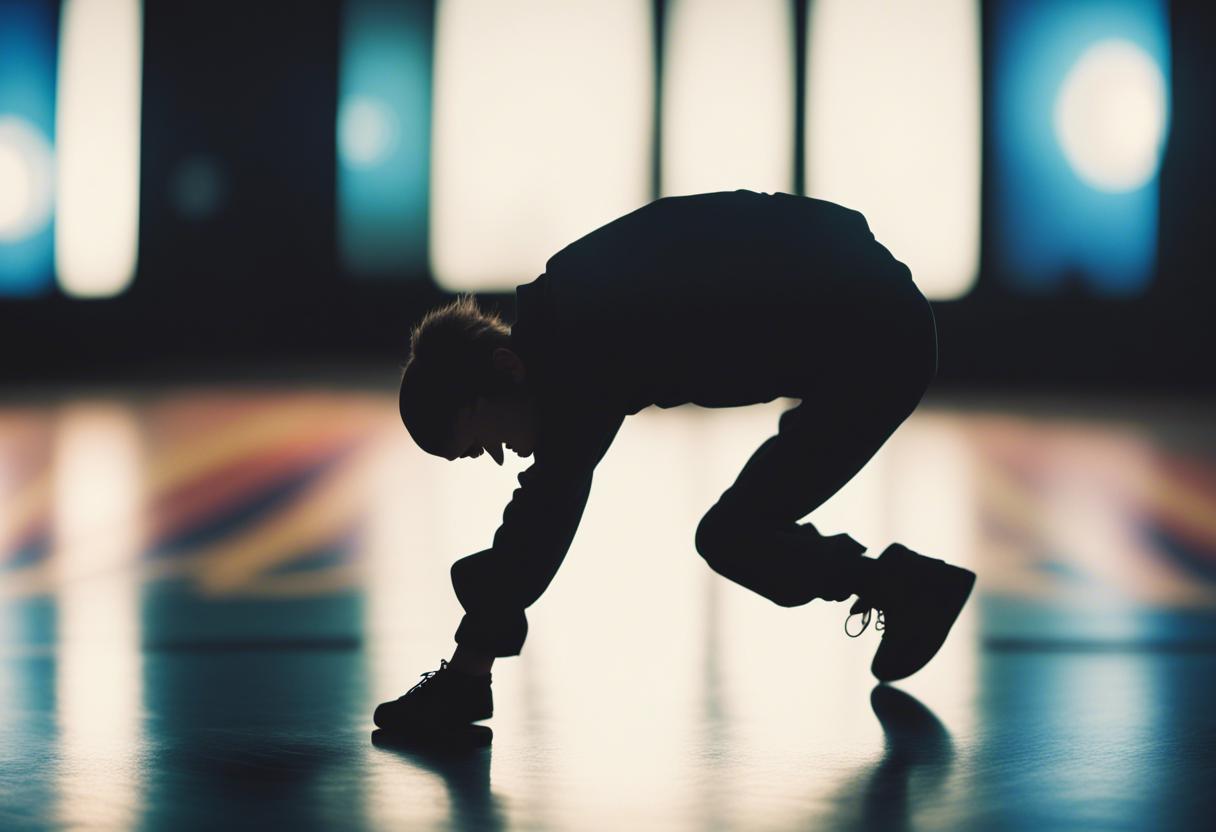At La Concorde, just an hour before the breakdance competition begins, spectators crowd around the warm-up stages, six rows deep. The atmosphere is akin to the practice area at a golf tournament, with a sprinkle of heavy bass thrown in. The DJ in the main arena is really in the groove, blasting tracks from American hip-hop artist Coi Leray, as she reminds us that ladies are players too.
Our hosts for the day, Malik and Max, make their entrance. Max extends a heartfelt thank you, sending love to the pioneers of hip-hop around the globe who cultivated this exquisite culture. He showers affection on NYC, the birth place of it all, offering them a spirited salute.
They then introduce a squad of dancers donned in oversized trousers, snapbacks and bulky trainers. Displaying wonderful acts of skill, head spins, energetic mic performances and passionate chants about representing b-boys and b-girls. They charge the atmosphere for a good ten minutes, hyping the crowd.
Once their set concludes, they bow to receive applause, and off they go to seats located next to the stage. They cool down, take sips from their drinks, and out of the blue begin to set up their laptops. This isn’t your average dance squad, these are the judges of the breakdance competition. Fascinating, isn’t it?
Next, in comes Snoop. No surprise there, really. Each sport at the Games is initiated with a renowned star using a cane to strike the ground thrice, imitating the French theatre tradition of quieting the audience. Fittingly, Snoop has the honour for the inaugural session of the first ever breakdance event at the Olympics.
The crowd is sent into uproar. Snoop embraces the moment like the seasoned performer he is. It’s beautiful chaos, an absolutely entertaining spectacle.
Now, you could argue this isn’t a sport. That’s one perspective. You could glance over the events at Paris 2024 and presume there’s no match between, say, what Sydney McLaughlin-Levrone accomplished on the track on Thursday evening, and what these youngsters are doing here on Friday afternoon. You could be that person. Or, you could broaden your horizon and tune in.
An athlete from the Olympic Refugee Team, Manizha Talash, was a key highlight in the inaugural dance contest of the Games. Her life story is a testament to the unyielding power of sport.
Manizha hails from Afghanistan but she currently resides in Spain, a transition largely influenced by her involvement in sports. Her passion for breakdancing was ignited during her adolescent years, when she stumbled upon a video of a breakdancer showcasing his moves. She was driven to replicate the performance and sought out a dance club in western Kabul, informing the coach of her eagerness to learn the dance style. Around the same period, she buckled on to the news of breakdancing becoming an Olympic discipline and resolved to be a part of it.
However, with the resurgence of the Taliban, drastic societal changes swept through her life. Despite acquiring a modest local following through her dance skills over a few years, the austere rules imposed by the Taliban forfeited her ability to continue. Women were now prohibited from schools and fitness centres, required to don full-body coverings, and participation in music and dance was strictly forbidden.
Understanding the imminent danger, Manizha, along with her dance comrades, made an exit from Afghanistan and sought refuge in Spain. She voiced her fears to the BBC prior to the Games, stating that her survival in Afghanistan would have been highly questionable. In her new home, Madrid, she found solace in the local breakdancing scene and proceeded to apply for the Olympic Refugee team for Paris.
Now, Manizha is an Olympic b-girl. Her dancing bouts against India Sardjoe from the Netherlands, despite resulting in losses, were indeed notable highlights of the Games. She used the stage to send a powerful message; during her final performance, she revealed a cloak bearing the phrase ‘FREE AFGHAN WOMEN,’ hand painted in white. This audacious act, usually frowned upon by the International Olympic Committee, induced a roaring cheer from the audience, leaving them little choice but to condone it.
Shortly after, her Olympic journey came to an end. She exited the stage and casually strolled to the broadcast area and then to the mixed zone. The experience seemed to have taken its emotional toll on her by the time she arrived there.
In a string of broken, translated discussions, all she can offer when asked to relay a message to Afghan girls who may have witnessed her act, is a heart symbol formed by her hands before carrying on. By the time she gets to the print media, she’s weeping and unable to restrain herself to engage in a dialogue. “Her performance conveyed all she needed to say,” conveys her interpreter.
Within the venue, competitions are still ongoing, with growing noise from the audience and an ever-increasing heavy bass. Manizha Talash, looking for a peaceful corner to wash away her tears, departs with her head drooped and her shoulders shaking.
Fancy questioning the validity of breakdancing as a sport now?

